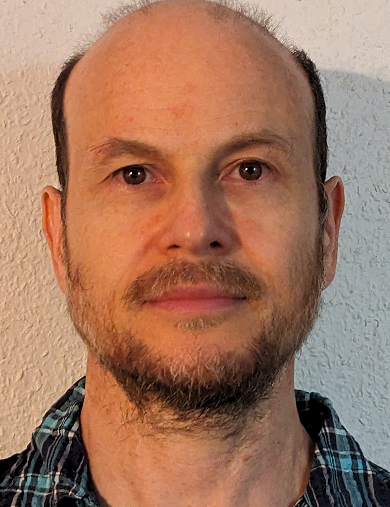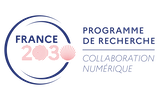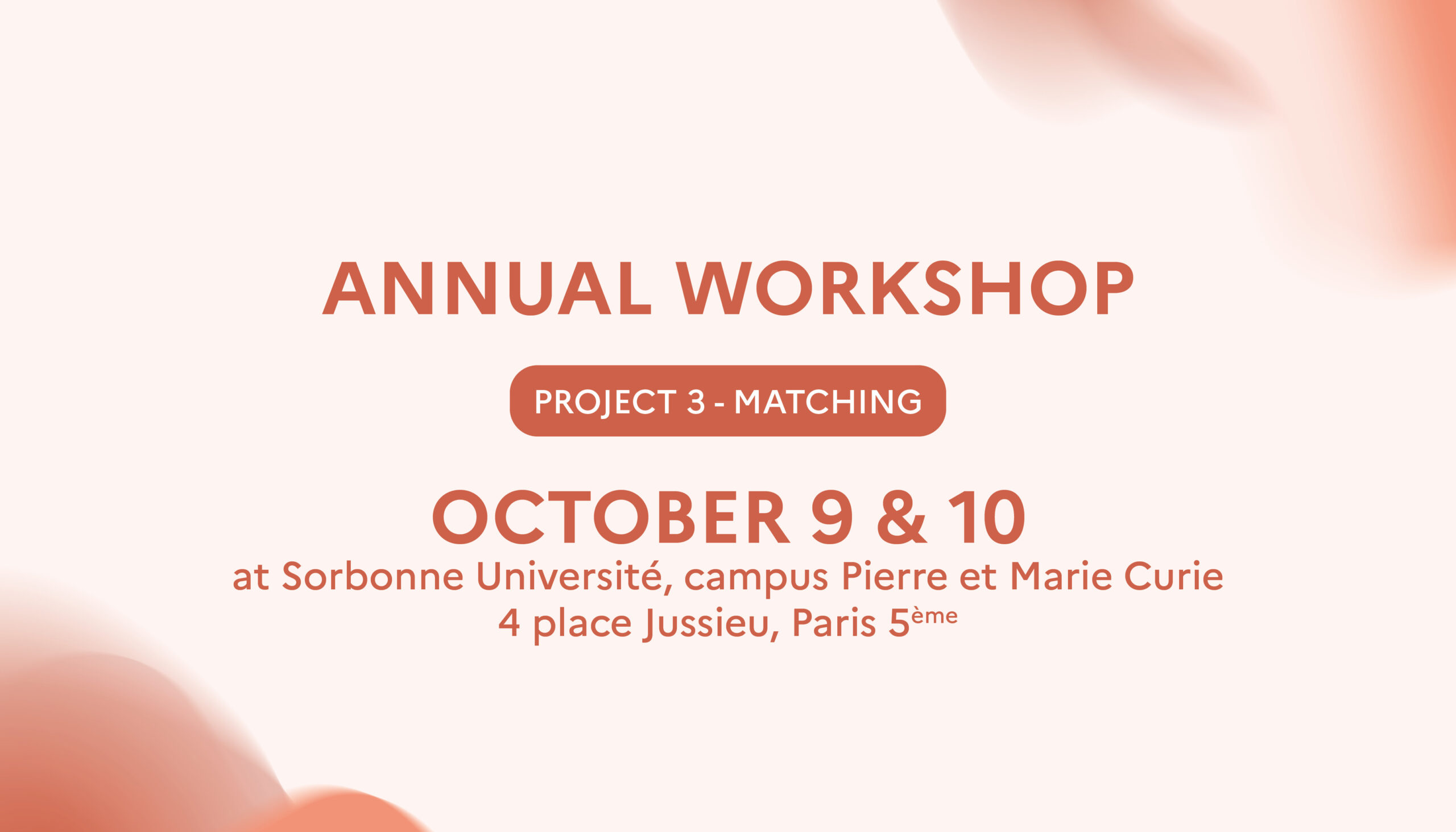The annual workshop of PC3 MATCHING will take place
🗓️ Thursday, October 9 and Friday, October 10
📍Sorbonne Université, Campus Pierre et Marie Curie, 4 place Jussieu, Paris 5e
He will present the progress of the project and welcome two speakers, who are introduced below.
Program
Thursday, October 9
| 9h30 – 10h | Welcome coffee |
| 10h – 10h30 | Opening |
| 10h30 – 12h00 | Presentation of progress on funded projects, session 1 |
| 12h00 – 13h30 | Lunch |
| 13h30 – 14h30 |
Keynote: The sense of agency in digital collaboration settings Ouriel Grynszpan, professor at Université Paris-Saclay, LISN member |
| 14h30 – 15h30 | Presentation of progress on funded projects, session 2 |
| 15h30 – 16h00 | Break |
| 16h00 – 16h40 | Presentation of progress on funded projects, session 3 |
| 17h00 – 18h30 | Collaborative work |
| 18h30 – 20h00 | Cocktail |
Friday, October 10
| 8h30 – 9h | Welcome coffee |
| 9h – 10h30 | Presentation of progress on funded projects, session 4 |
| 10h30 – 11h | Collaborative work feedback |
| 11h – 11h30 | Break |
| 11h30 – 12h30 |
Keynote: Physics-based simulation of Multi-Agent interactions using deep imitation learning Frank Multon, Senior researcher Inria, IRISA member |
| 12h30 – 12h45 | Conclusion |
| 12h45 – 14h | Lunch |
speakers

Ouriel Grynszpan
Professor at Université Paris-Saclay, LISN member
Sense of agency in digital collaboration settings:
The sense of agency can be defined as the experience of controlling one’s actions and their effects in the environment. It is considered critical to social interactions and forms the basis of the feeling of responsibility and therefore liability. Experimental evidence shows that disambiguating who is responsible for an action is not straightforward when the action is performed jointly with another person. This presentation will describe several experiments showing how joint action modifies the experience of agency. Changes occur at the explicit level of awareness but also at the implicit level of sensorimotor processes. Moreover, there is emerging evidence that the sense of agency is altered when interacting with artificial agents compared to human-human interaction.

Franck Multon
Directeur de recherche Inria à l’IRISA
Physics-based simulation of Multi-Agent interactions using deep imitation learning:
Simulating realistic interaction and motions for physics-based characters is of great interest for interactive applications, and automatic secondary character animation in the movie and video game industry. We propose a novel Multi-Agent Generative Adversarial Imitation Learning based approach that generalizes the idea of motion imitation for one character to deal with both the interaction and the motions of the multiple physics-based characters. Based on unstructured motion capture datasets, the system trains control policies allowing each character to imitate the interactive skills associated with each actor, while preserving the intrinsic style. This approach has been tested on two different fighting styles, boxing and full-body martial art, to demonstrate the ability of the method to imitate different styles.


